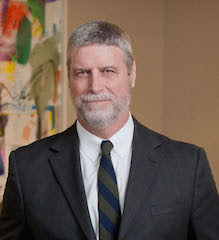We learned of the passing of NAFUSA member and former United States Attorney William Braniff on November 7, 2015. Bill served as a federal prosecutor for 22 years, including 4 years as U.S. Attorney in San Diego (SD of California, 1988-1993). Bill began his career as a federal prosecutor in 1970, when he joined the U.S. Attorney’s Office in Newark, New Jersey. His advocacy skills eventually led him to the position of criminal chief. In 1980, Bill moved to San Diego and joined the U.S. Attorney’s office. He quickly became known for his ability to analyze complex fraud issues and he prosecuted many important procurement fraud cases. Bill was sworn in as U.S. Attorney in 1988 by the Attorney General. During Bill’s tenure as U.S. Attorney, the office grew to include 90 attorneys and became one of the leading prosecutorial offices in the nation. Bill oversaw the successful prosecution of major cases in such areas as drug trafficking, white collar fraud, organized crime, health care fraud, and environmental crime. Throughout his career, Bill’s mission was to be the best advocate possible for the people of the United States. He carried out his mission faithfully and skillfully, earning the respect of his colleagues, adversaries, and the bench. Bill set an example that should be followed by young prosecutors everywhere.
As is our custom, NAFUSA arranged for an American flag to be flown over Main Justice on December 9, 2015, and it will be presented to Bill’s family in recognition of the regard in which he was held by his former colleagues.




 erving as an assistant dean of experiential learning at the Tulane University Law School – has joined the firm as of counsel in the New Orleans office. He will bolster the firm’s team of other former federal prosecutors, and expand its office in the Crescent City.
erving as an assistant dean of experiential learning at the Tulane University Law School – has joined the firm as of counsel in the New Orleans office. He will bolster the firm’s team of other former federal prosecutors, and expand its office in the Crescent City.





You must be logged in to post a comment.